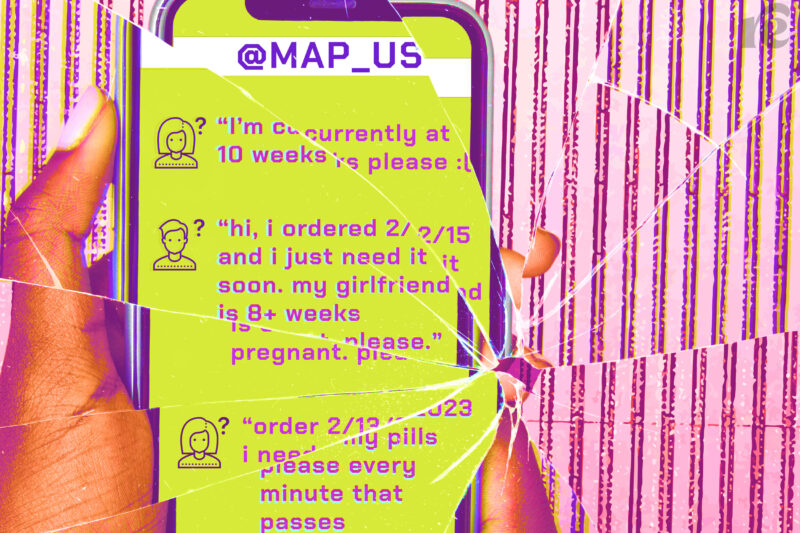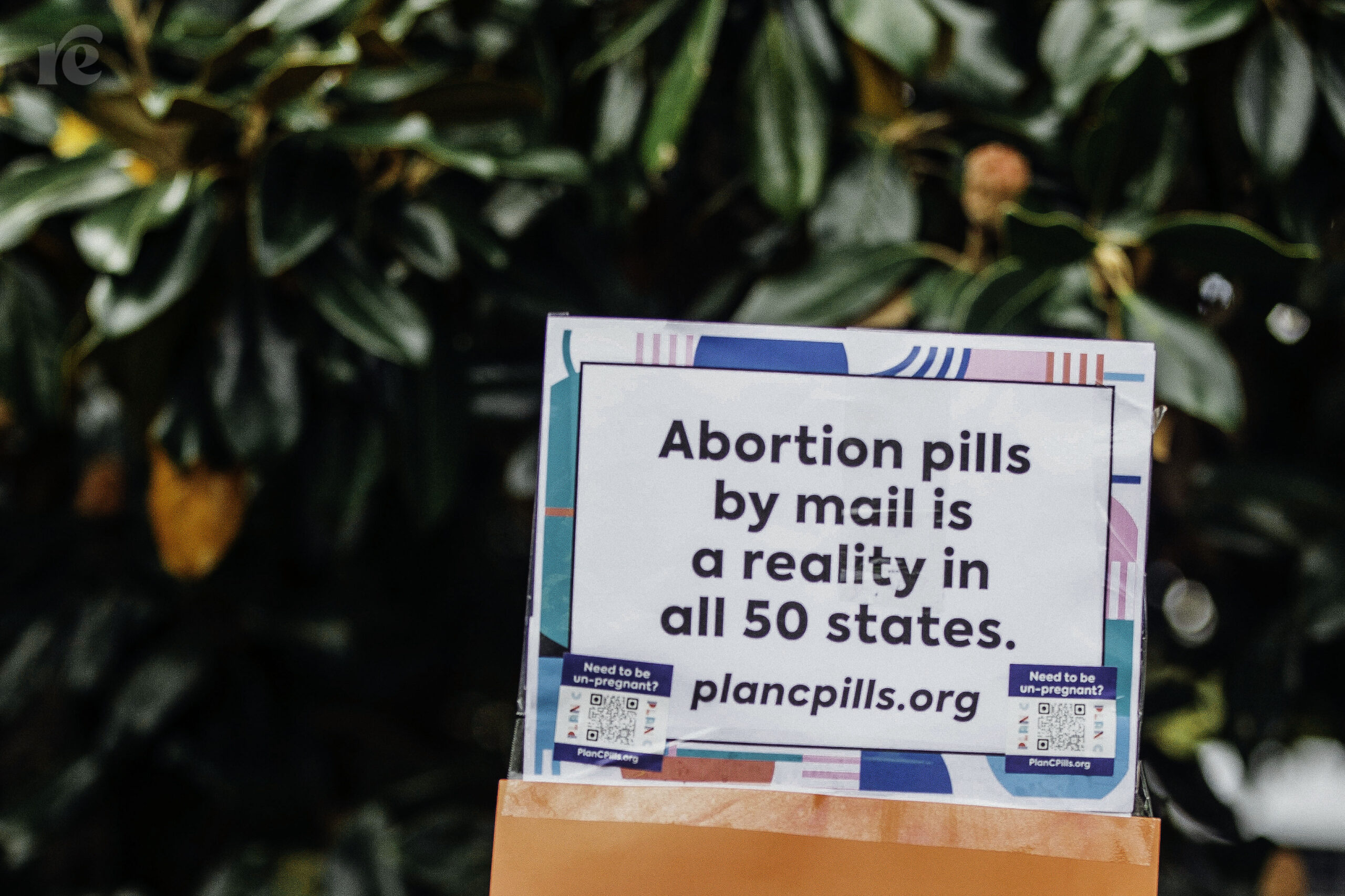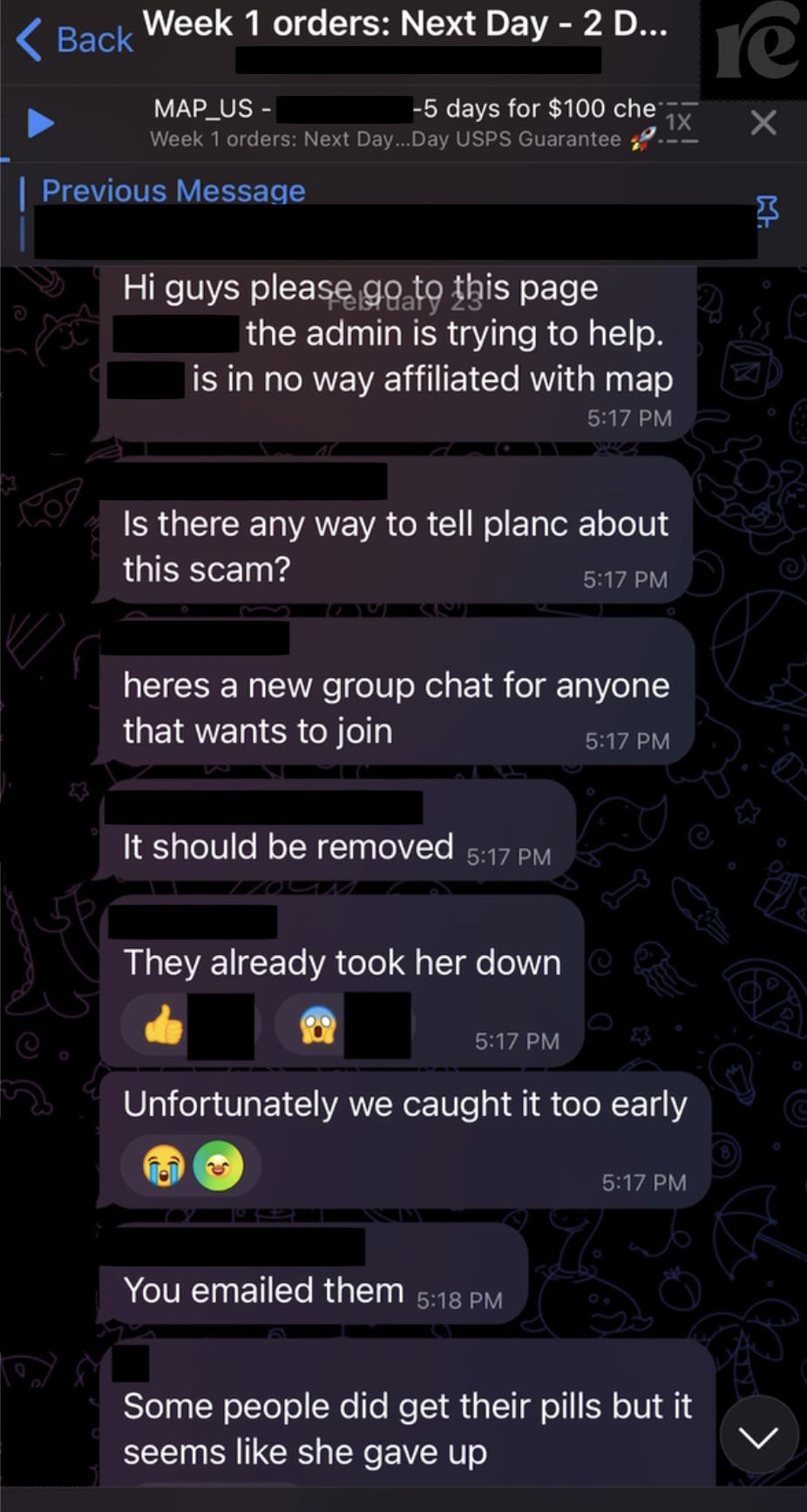Exclusive: How One Abortion Pill Service Collapsed Just After Launch
A new service promised abortion pills—fast. It left people in a panic.

I’m currently at 10 weeks please :(
hi, i ordered 2/15 and i just need it soon. my girlfriend is 8+ weeks pregnant. please.
order 2/13/2023 i need my pills please every minute that passes is worrying.
In recent weeks, the looming possibility that a staunchly anti-abortion federal judge could reverse FDA approval of one of the abortion pills at any moment has caused panic and confusion across the country. One consequence of this has been a rush to stock up. For example, the telemedicine service Choix—one of few to offer advance provision of abortion pills—has seen an uptick in such requests: In February, Choix received twice as many requests as its 2022 monthly average, according to CEO Cindy Adam.
The impending decision was what led Morgan to order abortion pills. Morgan, who’s using a pseudonym to maintain anonymity, lives in a state where abortion is still legal, but she wanted to have pills on hand in case she or a friend were ever to need them. In the listings on Plan C, a website that vets telemedicine services and online pharmacies, she noticed a new service called MAP_US, which promised to deliver abortion pills within three to five days for only $100—faster and cheaper than many existing services. Morgan placed her order on February 16, but three weeks later, she hasn’t received it.

Morgan wasn’t the only one. Eschewing a website, MAP orders were handled entirely through the encrypted messaging app Telegram, where people communicate via “channels.” A graphic posted in the MAP channel touted the security of the app, citing Telegram’s privacy policy that states it will only turn user information over to authorities in suspected terrorism cases. (You might recognize Telegram as the app used to organize the January 6, 2021 insurrection. It has also been a favored communication platform for ISIS despite efforts to boot the extremist group off the app.)
Morgan contacted Rewire News Group after a separate Telegram channel was created for people who hadn’t received their orders from MAP. When RNG accessed the since-deleted group on February 24, it had 115 members.
Telegram can be highly anonymous, allowing users to hide information like names and phone numbers. However, at the time RNG reviewed the group’s message history, many users were using their full names, and some shared other identifying information such as mailing addresses.
Morgan said she contacted RNG because she was concerned about other users who needed their pills urgently. There were numerous posts in the channel from people who said they or their partners were already eight, nine, or ten weeks pregnant.
“I’m 18 and going on 8 weeks with no updates or any sort of tracking,” wrote one user. “So now my only hope is to order from aid access and pray it gets here in time.”
Some users panicked; others urged calm. Two customers were appointed as volunteer moderators and began collecting order information from others to help arrange re-shipping. “I still haven’t received my package either, but I understand that the owner of this works 23 hour days to try to organize all of this,” one of the moderators wrote in response to complaints.
MAP’s founder communicated with the group primarily through voice messages, revealing an Australian accent. During periods of silence from the founder, some users speculated that the service was a scam. Based on the number of people in the main MAP group, which had 673 members on February 24, the users theorized that the founder could have made over $67,000 and taken off. They desperately shared information about other sources for pills and talked about complaining to Plan C. A representative for Plan C confirmed they delisted MAP_US on February 24.
“Due to reports of significant problems with this service, we have removed it from our Guide. We urge customers who paid but did not receive product to contact this distributor directly to request a refund,” a note on the Plan C website reads.
MAP’s founder, who spoke with Rewire News Group on the condition of anonymity, said she herself got scammed by someone who posed as three different suppliers and misrepresented the amount of stock he had in the United States. No U.S. providers ship pills to states that ban abortion or ban telemedicine, so services that deliver pills to these states—such as Aid Access, by far the most well-established provider in this area—rely on pills that come into the country from elsewhere, typically India.

MAP’s founder said she did her best to vet suppliers, and that the person who she said scammed her set up multiple email accounts to create the illusion of three unique suppliers with a total of eight mail forwarding centers, where pills that had already been imported into the United States could then be shipped via priority mail. Aid Access, by comparison, ships pills directly to users from an Indian pharmacy, which can take up to several weeks because the shipments have to make it through customs. (Another key difference between Aid Access and MAP is that requests to Aid Access are reviewed by clinicians; MAP had no such system in place.)
It took a while for her to discover the scam, the founder said, because some orders were actually shipped. For example, she points out that Plan C vets every service it lists, suggesting that MAP would never have been listed on the site had Plan C staff been unable to successfully place an order. In its listings, Plan C distinguishes between telehealth services like Aid Access and services that simply sell pills, like MAP.
Rewire News Group was also contacted by two people who said they did receive their pills. One of them, Lucy, who’s using pseudonym for privacy reasons, lives in North Carolina. Abortion is still legal there, but abortion via telemedicine is not. While comparing her options, Lucy noticed that Aid Access’ shipping time to North Carolina was three weeks, whereas to some other states it was much shorter—she didn’t know that was because of a telemedicine ban. (For states that allow telemedicine, Aid Access can ship pills from a U.S. mail order pharmacy rather than from overseas.)
Like nearly 60 percent of people who have abortions in the United States, Lucy already has children. She stays home to care for them, and wanted the discreet and convenient option of having an abortion at home. Her local clinic, she added, has a large and intimidating presence of protesters outside. She placed her order from MAP on February 11 and received the pills a little over a week later, right around the time others started to complain about not receiving theirs. “Maybe I got lucky,” she said.
Asked if she’d recommend the service to others, Lucy hesitated a bit, but ultimately said yes. “It seems like [the founder] is very aware of all the issues and is trying to move forward … I’d probably check first, to make sure people are getting them,” she said.

Parker, who’s also using a pseudonym for privacy reasons, lives in Pennsylvania and ordered pills on behalf of his partner, and said he received them as expected, within about three business days. Abortion is also legal in Pennsylvania up to 24 weeks, but after looking into options at local clinics, Parker learned it would cost five times more to get abortion pills that way, and started looking into online options. He saw the posts from people who hadn’t gotten their orders from MAP, and posted pictures of his in an attempt to reassure them.
“It was a little chaotic and everyone was a little nervous, and there was a big wave of discontent or distrust,” he said. “I mean, my heart goes out to all these people because they’re experiencing life-changing stuff going on. Some are on very short time frames.” Asked if he would recommend MAP to a friend, he said, “I would speak to my experience. This worked for me, this fit my time frame, this fit my budget. The world is not a friendly place economically for many people right now. I would just advise someone that if they had to operate within a constraint of time to [order] sooner than later so that there would be an opportunity for any issues to be rectified.”
All along, MAP’s founder had promised the group that she was working on an automated system that would streamline the ordering process, a project she said is now complete. However, she isn’t currently accepting orders, as she is planning to relaunch the business with a new focus: advance provision of abortion pills, meaning people can buy them ahead of time to have on hand in case they get pregnant.
In fact, that was her plan in the first place, she said. Her interest in the issue on the other side of the world began last June, after the Supreme Court overturned Roe v. Wade.
“My friends were talking about Roe v. Wade, and I’m a deep diver. So then I started looking at all the stats and that got me really passionate about it,” said the founder, whose background is in health-care business but not abortion care or tech. She was particularly shocked to learn about Texas SB 8, the first abortion law to incentivize citizens to enforce it through civil lawsuits. “I love a complex problem,” she said.
“I imagined myself in Texas and thought, OK, if I were a person in Texas and there were already all these barriers financially, and in terms of language, and in terms of just general social stigma, what would I want? Pretty much I would want someone to just drop the pills to me discreetly out of the air, and then I’d bury them … I’d want to get them and hide them, and then just know that they’re there,” she added. “That was actually my original concept, and that’s what I thought people would be doing.”
But the founder acknowledges she underestimated the number of people who would come to the service already pregnant—and not just pregnant, but already ten or more weeks along. Even if they eventually received their orders, some of these people may not have had enough medication for a complete abortion. MAP shipped blister packs containing one 200-milligram mifepristone tablet and four 200-microgram misoprostol tablets. For people fewer than ten weeks pregnant, this is sufficient. However, for those more than ten weeks along, additional doses of misoprostol are often needed. The founder said she was aware of this, and hoped to add the option of extra misoprostol doses eventually, but that the five-pill packs were all she could source initially.
The founder also said she did her best to reconcile missing orders. She said she offered refunds and re-shipped to some users after securing new supply at her own cost, resulting in some people receiving two or even three packages of pills. However, she acknowledges that she made mistakes.
“This wasn’t anyone’s fault but mine, and I take full accountability for that,” she said. In numerous messages to the MAP channels and in her communications with RNG, she said she was staying awake for days to try and rectify the issues. She sent messages at all hours of the day and night. Several times, she said she was contemplating shutting the whole venture down.
Morgan told RNG she believed the founder had good intentions, but seemed “pretty unprepared for the deluge of orders” she received. The fact that MAP apparently received hundreds of orders within a week of its launch demonstrates the immense need for quick, discreet access to abortion services; however, advocates have repeatedly raised concerns about just how easily well-intended efforts can go awry in the highly complex U.S. abortion access landscape, pleading instead for people to contribute money and other forms of support to existing efforts run by those with more experience.
Now referring to MAP as a “beta test”—though that terminology was never used in the initial marketing of the service—the founder said her new advance provision business will have a new name and branding. Though the final name relies on several auctions of non-fungible tokens (or NFTs)—Telegram now auctions “collectible usernames” as NFTs—it will be some variation of “Freda,” a play on the words “free to” as well as the name of Mexican painter Frida Kahlo. She said the ordering process is now automated “end to end,” and that she has stock secured. She will no longer promise three-day shipping.
“It’s going to be the affordable option that will get delivered to you, no matter who you are, discreetly, and it’s quality product. And you can buy an advance,” she said. Several times, she mentioned that a “big-name supplier” was ready to come on board if she could prove her concept, and said the second phase of the venture would “stop these little pop-up shops, liars, and dodgy operators.”
The framework she describes is very similar to Aid Access, which also offers advance provision. However, Aid Access advance provision requests are reviewed by clinicians, and while MAP’s founder mentioned clinician support as a future goal, no clinicians are involved with her service at the moment.
Morgan is doubtful about the advance provision plan. “I think in reality most folks will be getting pills they need right away, regardless of how she brands,” she said. Either way, Morgan hopes the founder will be more careful with the promises she makes going forward.
“It was all low stakes for me … but so life and death for many folks,” she said.

